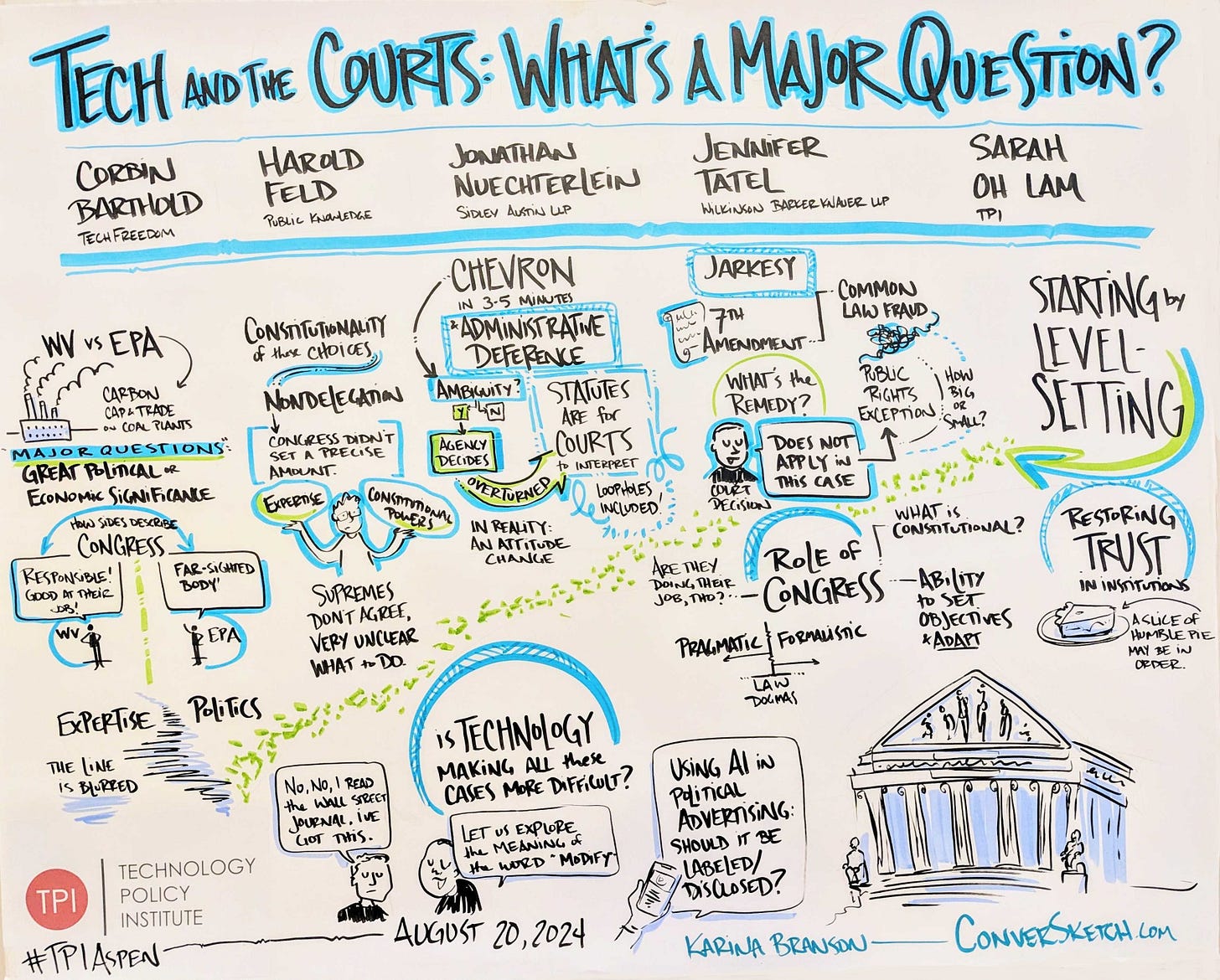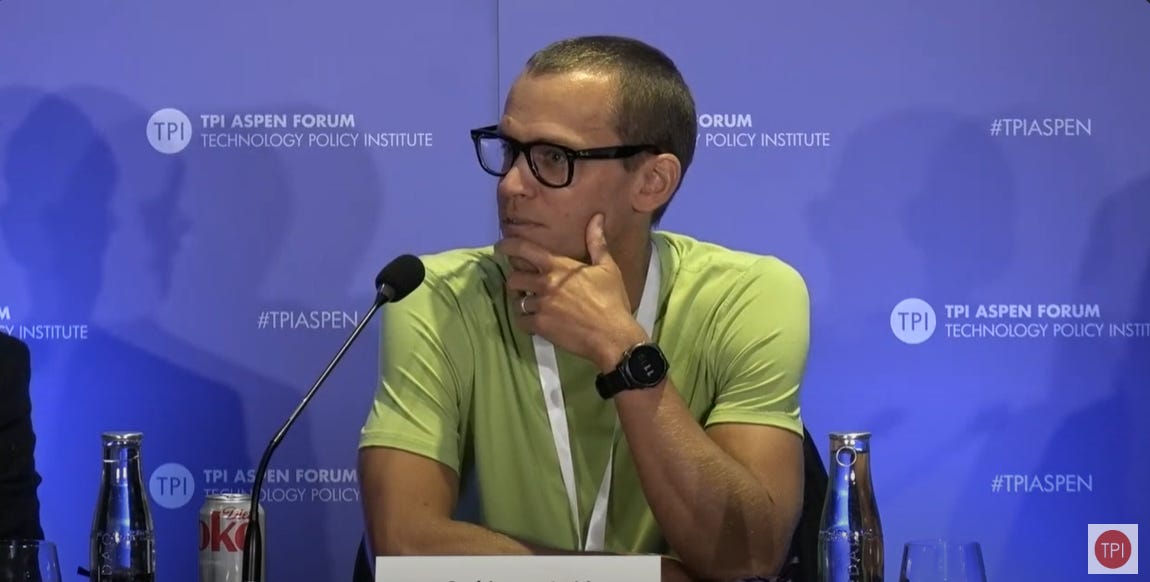Blah, blah, blah . . .
Recent talks on Murthy v. Missouri, the major questions rule, and the Facebook antitrust case.
Type, type, type. Talk, talk, talk. I’m trying to get all my typing and talking done before AI makes typing and talking obsolete (just kidding … I think).
I type more than I talk. But talking is fun, and this post is about that. Here’s some of the talking I did over the summer:
Government jawboning. In July, I spoke at a FedSoc event on the Supreme Court’s recent ruling in Murthy v. Missouri. This one had me a little nervous, I will admit. What I spoke about: the fact that the plaintiffs botched the case. My fellow panelists: lawyers who represented the plaintiffs in the case. So yes, it was awkward. But I felt duty-bound to tell a conservative audience that the conservative narrative about a “censorship industrial complex” is a bunch of bullshit. True enough, the state shouldn’t be telling social media companies how to moderate the content on their platforms. But the Murthy plaintiffs went forum-shopping for a partisan judge, and that judge’s rulings are full of made-up facts. The case that landed in the Supreme Court’s lap was too much of a mess for the Court to sort out. We missed out on getting a substantive ruling on the limits of government internet jawboning—and the plaintiffs have only themselves to blame for that.
Administrative law. Isn’t that drawing up top cool? (ConverSketch for the win!) It depicts the conversation from a panel I was on, in August, at the TPI Aspen Forum. We were supposed to focus on the Supreme Court’s recent opinions on the major questions rule. As you can see from the picture, the other panelists decided that we should try to cover, in our allotted fifty minutes or so, pretty much every big development in administrative law over the last few years. I stuck to major questions. If you want to hear some philosophical musings on that topic, I’ve got you covered. (And if you’re really into that topic, stay tuned: I’ll be devoting a full Tech Policy Podcast episode to major questions in a couple weeks.)
Antitrust law. Of all the Big Tech antitrust lawsuits, the Facebook case is by far the weakest. In each of the other cases, the government must overcome at least one formidable obstacle. In the Facebook case, by contrast, nothing hangs together. The market definition (which excludes YouTube, TikTok, Discord, ExTwitter, etc.) makes no sense. Facebook is way too uncool to have monopoly power (they are scrambling to copy TikTok, not other way round). The government is attacking Facebook’s purchases of Instagram and WhatsApp, even though Facebook almost certainly made those products far greater successes than they’d have been on their own. So many problems. At any rate, I was delighted that Washington Legal Foundation gave me the chance to host a webinar, in September, in which my main man Geoff Manne and I could vent about the asininity of the whole endeavor.
Podcasts. It was, by the way, a capital summer for the Tech Policy Podcast. The one and only Noah Smith served up a banger episode on the need for American techno-industrial leadership. I put out a special on all things AI, featuring the choicest thoughts and insights from ten past guests. Ari Cohn and Santana Boulton joined me for some irreverent summer doldrums kvetching about the Supreme Court’s internet law non-decisions. Find those episodes and more on any reputable podcast platform. I’ll say it again: I have a grand old time running the show.
Federalist Society: Courthouse Steps Decision: Murthy v. Missouri
TPI Aspen 2024: Tech and the Courts: What’s a Major Question?
Washington Legal Foundation: The Feds Unfriend Facebook: Why the FTC’s Meta Antitrust Case Should Fail
Tech Policy Podcast: Noah Smith / AI clip show / SCOTUS bitchfest
Deep thoughts? Or just stumped?





